Why Should We Hate GMOs?
Why Should We Hate GMOs?
Intro - The Stigma With GMOs
My friend asked me about GMOs. She asked, "Are GMOs safe?" Before I answered her question I asked her, "What are your initial thoughts about them? What have you heard about it?" She replied, "I heard that they were bad, unhealthy, unnatural, toxic, and filled with chemicals!"
After hearing that, it made me wonder, why is there this conception of GMOs? Why would my friend believe in this? So, I did some research and I can see why many people would be very against GMOs. Lo and behold, the first thing I find when I search GMO shows a website called THE NON GMO PROJECT!!!
I can now see why there is a stigma for GMOs. If a layperson was curious about GMOs and were to look it up and the first thing they saw was a website dedicated to halt GMO progress AND they saw an image of an EVIL GENETICALLY MODIFIED CORN then I get why initial thoughts would be that GMOs are not safe. I get it. However, before you continue, please let go of any preconceived notions you may have, and think about the information given to you. I am going to explain if we should hate GMOs. First, I'm going to talk about the history of genetic engineering.
Genetic Engineering Since Early Man???
Something that may blow your mind is that humans have been modifying genes for a long time. How? Let me explain it. First, I want you to understand this, "selective breeding/artificial selection." Selective breeding is basically choosing "parents," with particular characteristics to breed together and produce offspring with more desirable characteristics. Like choosing smaller dogs to mate only small dogs until eventually, you have a breed of just small dogs! The first animal we believe that humans have "artificially selected," are actually dogs.
"Around 32,000 years ago, while our ancestors were still hunters and gatherers, wild wolves in East Asia joined groups of humans as scavengers. They were domesticated and then artificially selected to increase docility, leading to dogs that are closely related to what are currently known as Chinese native dogs [2]. Over millennia, various traits such as size, hair length, color and body shape were artificially selected for, altering the genetics of these domesticated descendants of wolves so much that we now have breeds such as Chihuahuas and corgis that barely resemble wolves at all! Since this time, artificial selection has been applied to many different species and has helped us develop all sorts of animals from prize-winning racehorses to muscular beef cattle."
- http://sitn.hms.harvard.edu/flash/2015/from-corgis-to-corn-a-brief-look-at-the-long-history-of-gmo-technology/
Through selective breeding over long periods of time, we can get the desired traits we want from an organism. From chihuahuas to Great Danes, we kind of did it ourselves! Now, I want you to make this connection, what we did to wolves is the same as what we did to our food! For example, look at what we did to corn through selective breeding/artificial selection!
"Corn, or maize, began as a wild grass called teosinte that had tiny ears with very few kernels [4]. Over the hundreds of years, teosinte was selectively bred to have larger and larger ears with more and more kernels, resulting in what we now know as corn. A similar process has given us large heads of broccoli, bananas with nearly unnoticeable seeds, and apples that are sweet and juicy."
- http://sitn.hms.harvard.edu/flash/2015/from-corgis-to-corn-a-brief-look-at-the-long-history-of-gmo-technology/
Most of the food that you already eat is the way it is by selective breeding! Now that you learned about selective breeding and understand that humans have been doing this for thousands of years, I want you to make the connection of selective breeding and genetic engineering. Selective breeding is one technique we to get the traits we want out of organisms. However, now we have a faster way of getting the traits we want with our current technology and it is not that different from what we have done already.
Genetic Engineering and Selective Breeding
You have seen that humans have always tried to breed better crops and livestock. We used to do this by selective breeding which was done by carefully choosing parents for breeding that show the required characteristics. More recently it's been possible to implant particular genes using genetic engineering. Both these techniques depend on there being change and variation in the genetic material – which is caused by mutations!
"A faster way of producing new varieties is to transfer the genes for the desired characteristic into an organism artificially. This is genetic engineering. The gene may have come from the same species, but genetic engineering also allows the genes from an unrelated organism to be transferred – something that's not possible with selective breeding."
- http://www.bbc.co.uk/schools/gcsebitesize/science/add_gateway_pre_2011/living/genesrev3.shtml
I hope that you can kind of make the connection between having a genetically modified organism by genetic engineering and selective breeding. It is "almost" the same thing. You could think of genetic engineering as a faster way of selective breeding and choosing exactly what things you want instead of waiting for the right mutations to come up!
Are GMOs Safe?
Yes, yes, yes, yes, and... YES! The first link from the National Academies of Science, Engineering, and Medicine. It is a really beefy read and definitely too much for the layperson. However, it is an extremely credible source and is more credible than any other pseudoscience hippy crap article. Overall, it concludes that GMOs are safe and there is not much of a difference between genetic engineering and other types of plant breeding ie. selective breeding.
"Prior National Research Council reports have argued that there is no strict dichotomy between genetic engineering and other forms of plant breeding with respect to risk. Recent developments in genome editing and other emerging genetic-engineering technologies make it even more apparent that regulatory approaches that focus on some form of breeding “process” as an indicator of risk are less and less technically defensible."
- https://www.nap.edu/read/23395/chapter/12#514
This is from a credible scientific journal. From the abstract, it states that the scientific consensus is that there are no significant hazards directly connected to GMOs. The debate is intense and we could have a better discussion if society was more scientifically literate.
"We have reviewed the scientific literature on GE crop safety during the last 10 years, built a classified and manageable list of scientific papers, and analyzed the distribution and composition of the published literature. We selected original research papers, reviews, relevant opinions and reports addressing all the major issues that emerged in the debate on GE crops, trying to catch the scientific consensus that has matured since GE plants became widely cultivated worldwide. The scientific research conducted so far has not detected any significant hazards directly connected with the use of GE crops; however, the debate is still intense. An improvement in the efficacy of scientific communication could have a significant impact on the future of agricultural GE."
- https://www.tandfonline.com/doi/full/10.3109/07388551.2013.823595?scroll=top&needAccess=true
What Have GMOs Done Today?
What do we use GMOs for today? We use could modify plants that are resistant to pesticides, more nutritious, able to kill off pests with pesticides, and even become more aesthetically pleasing.
With GMOs, scientists were able to genetically engineer a type of rice called Golden Rice that could save many people. Many kids under 5 in developing countries have VAD, aka vitamin A deficiency. The administration of vitamin A supplements have saved 600,000 every year. Golden rice could save many more.
Scientists have also genetically engineered crops to increase nutrition value. For instance, Golden Rice was developed in 2000 with the goal to combat vitamin A deficiency, which is estimated to kill over 500,000 people every year [13].
- http://sitn.hms.harvard.edu/flash/2015/good-as-gold-can-golden-rice-and-other-biofortified-crops-prevent-malnutrition/
With GMOs, we get some better tomatoes!
After five years of extensive health and environmental testing, Calgene’s Flavr Savr tomato became the first food crop to be approved for commercial production by the U.S. Department of Agriculture. These tomatoes were modified to include a DNA sequence that inhibited production of a natural tomato protein, increasing the firmness and extending the shelf life of the Flavr Savr variety.
- http://sitn.hms.harvard.edu/flash/2015/from-corgis-to-corn-a-brief-look-at-the-long-history-of-gmo-technology/
We can make plants that produce pesticide which can help against spraying pesticides on food. Also, I would like to add that plants producing a pesticide does not equate to it being deadly to us. It is analogous to this... do you drink coffee? Coffee has caffeine which is deadly to bugs but, it's awesome for us! Also, dogs can't enjoy chocolate due to how they process they metabolize theobromine, but humans can easily metabolize it! Same for a crop that produces Bt. It's deadly to bugs, but relative to us, it is harmless.
In 1995 the first pesticide-producing crop was approved by the U.S. Environmental Protection Agency after rigorous testing [12]. A year later, Bt corn was approved, and now the majority of corn in the U.S. has the Bt toxin gene (see this article). Additionally, crops have also been genetically engineered to resist herbicides, making it easier for farmers to control unwanted plants in their fields. Perhaps the most famous herbicide resistant crops are the Roundup Ready or glyphosate-resistant plants (see this article). The first of these glyphosate-resistant crops was a variety of soybean, engineered by Monsanto in 1996. Now glyphosate-resistant technology has been applied to many other crops, including corn and sugar beets.
- http://sitn.hms.harvard.edu/flash/2015/from-corgis-to-corn-a-brief-look-at-the-long-history-of-gmo-technology/
In Conclusion
I hope that you had a good time reading this article and I also hope that I may have influenced how you think about GMOs. If you find any inconsistencies or would like to debate this topic or share the same sentiment as me, feel free to comment about it, I would love to talk about it!
A big influence was from these youtube videos so please watch them:
Please please follow me! I would love to write more articles and I have some more coming up soon! They'll be about debunking false things, destroying pseudoscience, and keeping it real! Stay beautiful people!
P.S. my friend still thinks that GMOs are EVIL AND WILL KILL YOU!!!!!!!
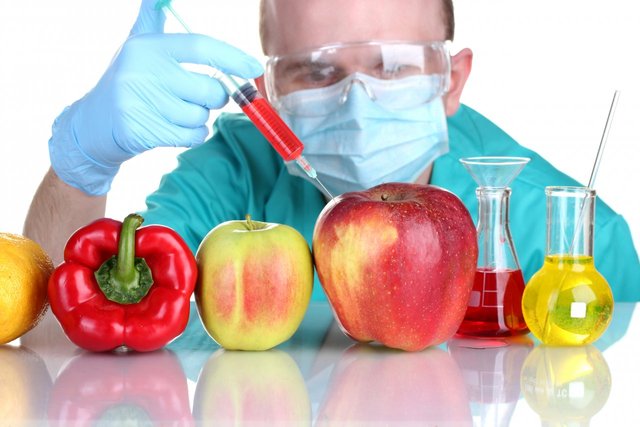
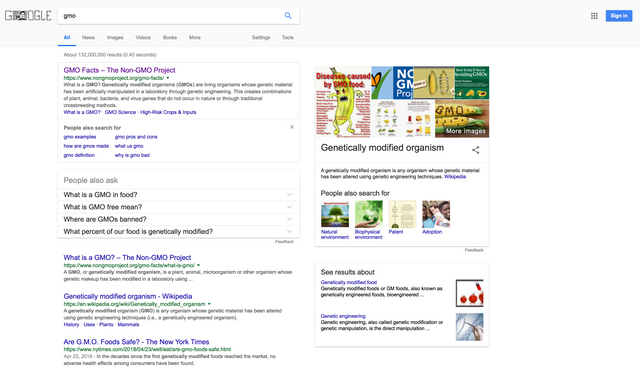

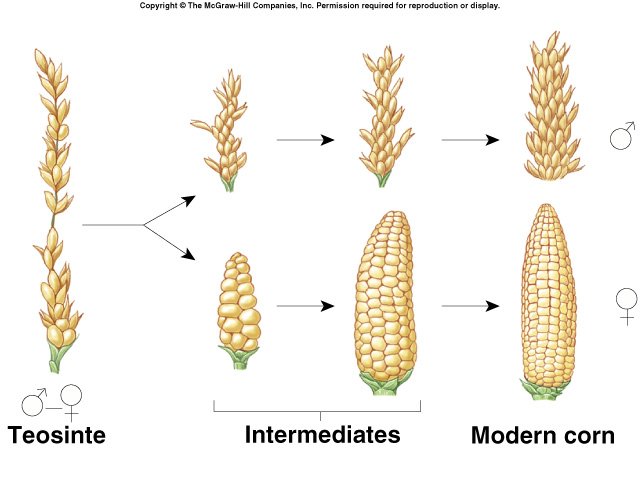
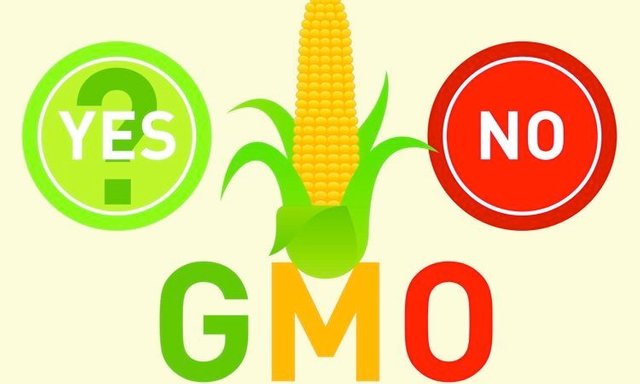
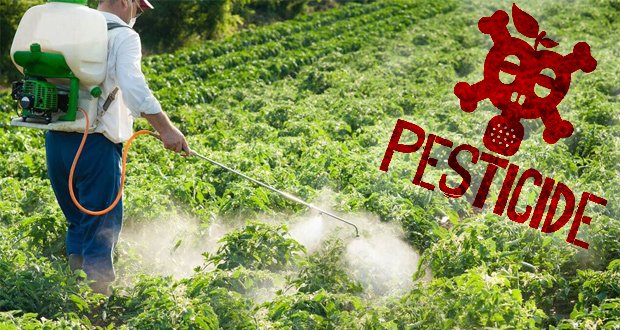
Wow happy to know that.
This is so awesome I learned so many this is the best I recommend this a lot